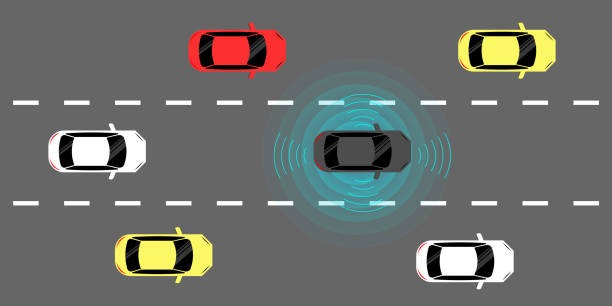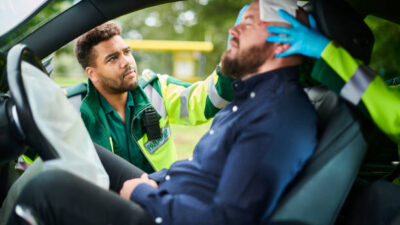Self-driving cars were once a futuristic dream, but they’re now a reality on roads across the U.S. While this technology offers exciting possibilities, it has also introduced new legal challenges. The first self-driving car lawsuits are already shaping the future of liability, insurance, and consumer rights. If you or a loved one has been injured in an autonomous vehicle crash, a self-driving car accident attorney can help navigate these complex cases. These early legal battles provide valuable insights into how courts handle self-driving accidents—and what victims should know.
Who Is Liable in a Self-Driving Car Accident?
Unlike traditional car accidents, where fault typically falls on a driver, self-driving car crashes introduce multiple potential defendants. The parties that may be held liable include:
- The vehicle manufacturer – If a flaw in the car’s software or hardware caused the accident, the manufacturer could be responsible.
- The software developer – Autonomous vehicles rely on AI and complex algorithms. If a coding error contributed to the crash, the developer could be at fault.
- The car owner or operator – Some self-driving systems still require human oversight. If the owner failed to intervene when necessary, they may share responsibility.
- Third-party maintenance providers – If a faulty sensor or improperly installed update led to the crash, maintenance companies could be liable.
Recent lawsuits highlight the difficulty in determining fault. Courts are still deciding how liability laws apply when a machine—not a human—makes the driving decisions.
The First Lawsuits: What We’ve Learned
Early legal battles involving self-driving cars have provided key takeaways:
1. Technology Isn’t Perfect—And Courts Recognize That
The first fatal self-driving car accident occurred in 2018 when an Uber test vehicle struck a pedestrian in Arizona. Investigations revealed the car’s AI failed to properly detect the pedestrian, and Uber settled the case quickly. However, the safety driver monitoring the system was also charged with negligent homicide for not intervening. This case set a precedent: while companies developing self-driving cars can be held accountable, human operators may still share responsibility.
2. Manufacturers Are Facing Product Liability Claims
Tesla, one of the leaders in autonomous vehicle technology, has faced multiple lawsuits over its Autopilot system. In one high-profile case, the family of a man killed in a Tesla crash sued the company, claiming the Autopilot software was defective. Tesla argued the driver misused the system, but the case emphasized a growing trend—victims holding manufacturers accountable for flaws in automated driving features.
A major challenge in these lawsuits is proving whether the accident was caused by human error or the AI system. Courts are still determining how much responsibility automakers should bear when marketing vehicles as “self-driving.”
3. Data Is Critical Evidence in Self-Driving Accident Cases
Self-driving cars collect massive amounts of data, including sensor readings, GPS tracking, and camera footage. In early lawsuits, this data has played a crucial role in determining fault. For example, in a recent case involving Waymo, Google’s autonomous vehicle division, crash data helped prove the AI’s reaction time was too slow to avoid a collision.
Attorneys representing accident victims increasingly rely on this data to support their claims. If you’ve been involved in an autonomous vehicle crash, it’s crucial to work with a self-driving car accident attorney who understands how to secure and analyze this evidence.
How These Cases Are Shaping Future Laws
The legal system is still catching up with self-driving technology, but these lawsuits are already influencing policies:
- Tighter regulations on testing and deployment – States like California have introduced stricter oversight of self-driving vehicle programs in response to high-profile accidents.
- Clearer consumer protections – Automakers are facing increased pressure to clarify what their technology can and cannot do. In response to lawsuits, Tesla has adjusted its messaging about Autopilot’s capabilities.
- Stronger insurance requirements – Insurers are reevaluating how they cover self-driving vehicles. Some companies are pushing for manufacturers to take on more financial responsibility when their technology fails.
According to a Harvard Law Review article, self-driving car litigation will likely influence how liability is assigned in future AI-related accidents beyond just the automotive industry.
Self-driving cars may be the future, but accidents involving them raise serious legal questions. If you’ve been injured in an autonomous vehicle crash, understanding your rights and seeking legal help is essential.
Conclusion
The first self-driving car lawsuits have shown that liability in these cases is far from simple. While manufacturers, software developers, and human operators can all share responsibility, proving fault requires expert legal guidance. As self-driving technology evolves, so will the legal battles surrounding it. If you or a loved one has been injured in an autonomous vehicle accident, speaking with a self-driving car accident attorney can help you understand your options and pursue the compensation you deserve.



